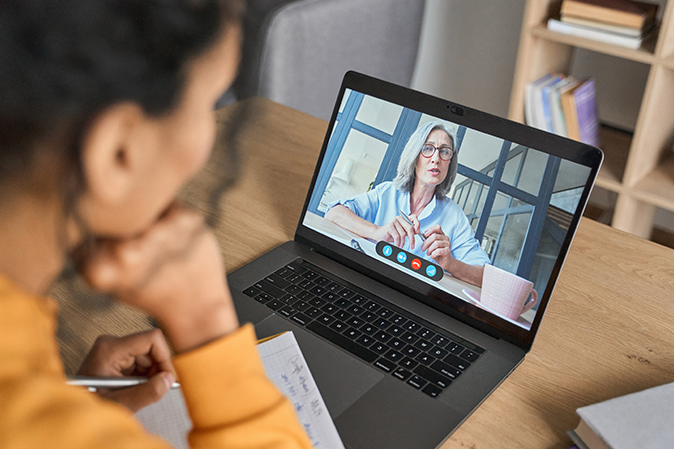Thank you!
The full article is available below.
You will also receive a follow-up email containing a link so you can come back to it later.

Let’s face it, navigating law school can be difficult without some assistance. It’s important to have someone who can encourage you in your personal and professional growth during law school and as you make your way into the legal field.
As you consider finding a mentor, think about what you most want from the relationship. Are you looking for insight into a problem area? Do you need guidance as you approach the bar exam or an interview? Or maybe you simply don’t know what you don’t know.
The better you can assess what you want, the better you will be able to vet possible mentors and arrive at a successful relationship. Here are some tips for finding mentors and, more importantly, effectively maintaining those relationships.
Types of law school mentors
Your first legal mentor is likely to be a designated student who will help guide you through 1L year and beyond by providing advice, listening to your struggles and challenges, spotting your strengths and weaknesses, and of course, sharing experiences (and outlines). Many law schools have formal mentorship programs to match new students with current ones. If you go this route, you’ll have access to someone who is committed to giving you time and advice.
Finding a practicing attorney mentor can be a bit trickier. Because you will be spending quality time with this person, you should choose someone with whom you are compatible and comfortable. Different types of people will be helpful at different times during your law school journey.
Find a mentor through networking
The best mentor/mentee relationships grow organically through shared beliefs or interests and networking. For this reason, one of the best ways to find a mentor is by joining and attending a variety of specialized bar or alumni association group meetings and activities. By joining professional organizations, you are more likely to meet people who are actively engaged in the industry and who share your interests, both professionally and socially.
Bar and alumni association groups have a variety of activities and events (think fundraising and recreational) that might interest you. Try a few out and make some connections with like-minded practicing attorneys. Just remember that the basis of your connections doesn’t always have to be legal. The best relationships often grow through shared experiences of all kinds.
Have more than one mentor
It’s ok, and even encouraged, to have more than one mentor. The legal field is complex, so it’s helpful to have multiple mentors who can provide different perspectives. Maybe one will best support you in gaining confidence, while another will help you develop skills. Consider where you need the most focus and seek out people who can assist you in those areas to grow personally and professionally.
Don’t be afraid to reach out to someone new
If you recognize that a person possesses a trait or skill you wish to emulate or build, reach out to them. Admittedly, this is often easier if you have already met the person through a school function or bar association meeting. But don’t be afraid to send an email or reach out on LinkedIn to ask a person you admire to meet for coffee or lunch.
Before reaching out, think about why you want to meet this person and what knowledge you want to gain from them. If you can clearly articulate the reason for your request to meet, it will increase the likelihood of the person accepting. View the initial meeting as time for you both to determine if there is a good fit. If the outcome is a positive one, make the meetings a continual occurrence and grow the relationship.
Be sure to cultivate the relationship
If you meet a mentor through a bar association, maintaining contact with them is fairly easy because you are likely to see each other at subsequent meetings. However, if you won’t have a regular opportunity to connect with a potential mentor, maintaining the relationship may require a bit more effort.
If possible, try to get a sense of what type of schedule would work for touching base with your mentor. Is this a quick coffee every other month? Would a monthly email, Zoom or phone call work best? Or would a lunch every six months fit the bill? Find a good balance that works for both of you.
Remember, it’s a two-way street
A mentorship is not always just about what you want and need; it should be a mutually beneficial relationship for both parties. Sending follow-up emails to provide updates is important but remember to ask your mentor if there is anything you can do to help them as well. A mentor/mentee relationship can grow into a valuable, lasting relationship — so make it count!
Unlock the Full Article
Bring Your Goals Within ReachTell us a little about yourself and your goals to display the full article and gain access to more resources relevant to your needs.
Interested in reading more? Fill out the form to read the full article.